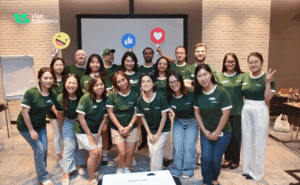We often post on social media without thinking. We take a cool photo, we post it; we see a funny meme and we share it; we are in a new relationship and we want the world to know. For most
of us there are no consequences of these actions but what if you are in the process of applying for a visa? In particular visas that require sponsorship i.e.: partner visas or in some case employment related visas. These visas
often have criteria that needs to be met in order for the relationship between the applicant and their sponsor to be recognised and this information all needs to be stated on the visa application. Anything that questions the
validity of the required information can be used when determining if a visa will be granted or not.
What a lot of new visa applicants are not aware of is that their case officer and the Administrative Appeals Tribunal (AAT) are entitled to check their social media accounts as part of the
assessment process. This allows authorities to verify information provided on the visa application and ensure there are no inconsistencies. It should also be noted that social media accounts of an applicant’s family
and friends can also be reviewed.
Researching applicants on social media can reveal all sorts of information and unfortunately in some cases can have negative consequences. Information such as religion, relationship status,
work experience and sexuality can be found on social media and in the case of visa applicants be compared to information provided to the Department of Immigration. There have been cases where information found on social media,
in particular Facebook, is contrary to information provided on the visa application and the applicant’s visa has been denied.
While information on social media accounts may seem hard to verify, the information can throw doubt on information provided on a visa application. The information posted to social media
accounts can give weight to a relationship but can also raise questions as to whether there is a true relationship between the visa applicant and the person they have stated as their partner.
In some instances, case officers and the AAT have come across videos or photos on Facebook that have revealed that while a visa applicant may be in a relationship, the relationship may not
be with the person named on their visa application. There may also be information to suggest that the applicant is not in a relationship at all and fraudulently stated they were in order to apply for a particular visa.
There are other complex circumstances related to social media that can also cast doubt on a visa applicant. Activities that an applicant or their sponsor has undertaken and made public on
social media may be in breach of visa conditions or may tell a different story to that stated on their visa application. Whatever the case may be, if it is found that the information on the visa application has been falsely
reported then the Department of Immigration has justification in denying a visa.
So, what’s the lesson in all this? It’s ok to use social media but be careful. Think about what you’re posting and what information is available about you on social media
and whether it is consistent with what you have included on your visa application. Also keep in mind that while your profile may be private, those of your family and friends may not be and information about
you can be accessed through them.
If you have any questions about migration, speak to one of the VSA team today. It is a complex subject so it is important to speak with someone in the know.




